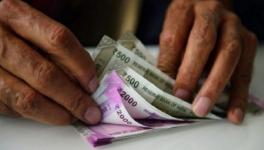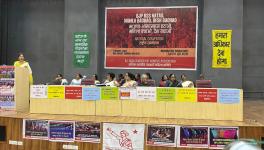GST on Textile Raised, Upset Surat Traders Protest
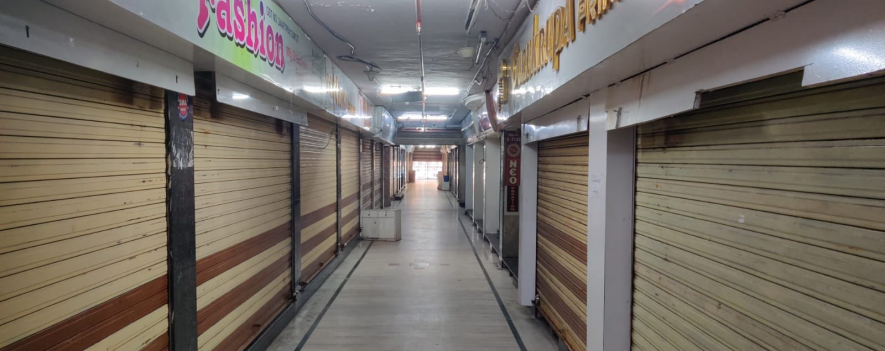
Surat: Textile traders here are once again up in arms against the BJP government after the Central government’s decision to hike the Goods and Services Tax (GST) on textile fabrics from 5% to 12% that will be effective from January 2022. The trade associations that are planning to protest the increased tax hold that the move will adversely impact the industry that is yet to overcome the impact of the implementation of GST followed by demonetisation and the pandemic.
The traders have stated that the increased GST will particularly impact the market for affordable clothing. Apparel above Rs 1,000 was already being taxed at 12% but with the new tax regime, all apparel will be taxed at 12% increasing the price of the affordable clothing that is more widely in demand.
The Federation of Surat Textile Traders Association (FOSTTA) called a bandh of the textile market across Surat on December 30 as a mark of protest. The 165 textile trading markets of Surat which contain over 65,000 textile trading shops remained shut on December 30 with the youth brigade of the textile trading sector protesting by banging plates in the market.
The Federation of Gujarat Weavers Association has announced a series of protests and bandhs in the upcoming days. In a press release, the organisation stated, “On December 30 and December 31, weavers will gather at industrial estates and bang steel plates with rolling pins to protest the hike. All the power looms units of Surat will be shut on January 1, to protest the hike in GST. From January 2 to January 5, the weavers will stop taking delivery of grey bales and purchasing yarns.”
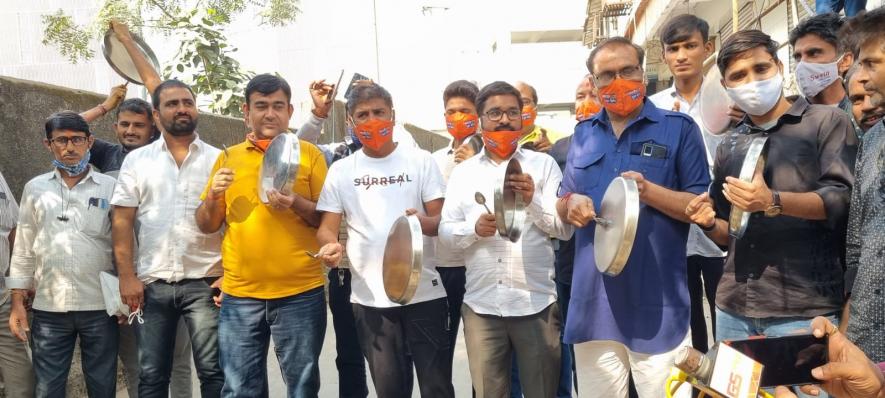
All the three bodies of the Surat textile industry - The Federation of Gujarat Weavers Association (FOGWA), the Textile Processing Unit Association and FOSTTA along with the Confederation of All India Traders (CAIT) have decided to meet in Kanpur on January 11 and 12 to decide on the course of a nationwide protest. Earlier, the youth brigade of the textile trading sector of Surat had sent over 5000 postcards to Union Finance Minister Nirmala Sitharaman requesting to not hike the GST duty effective from January 1, 2022.
CAIT in a letter to Nirmala Sitaraman wrote, “For years there was no tax on textile so when the GST was implemented on textile, it was huge shock for the traders. We request that GST on textile not be increased to 12% and remain 5% as earlier. The new added tax will not only affect the entire sector but it will break the backbone of small and medium scale businesses. Besides, the businessmen will have to pay an additional 7% on the raw material they already have in stock.”
“On one hand this government talks of being atma nirbhar (self-sufficient) and on other hand increases a tax at a time when the industry is already struggling to compete with Vietnam, Indonesia, Bangladesh ad China,” the letter further read.
“The sarees will become costlier by 30% after implementation of the revised tax slab. About 40% of the small and medium businessmen will be likely to shut down due to the increased GST,” Manoj Aggarwal, President of FOSTTA told the media.
“For the past four years, the textile industry has been struggling against one odd after the other. First, it was the implementation of GST in 2017 that saw the closing down of power looms. Then the government went through the demonetisation and for the past two years, we had no income owing to the pandemic. The traders just had a decent sale during Diwali and owing to pent up demand of the wedding season that the government is now slapping us with a new tax slab of 12%,” Champalal Bothra, general secretary of FOSTTA told the NewsClick.
“The Surat textile market remained closed today as a mark of protest even though we lost Rs 150 crore worth of business in a day. Traders are willing to suffer this loss as the increase in GST will be a bigger jolt for us. The textile industry comprises of about 70 to 80% of small and medium scale businessmen who will not survive the additional burden of the additional tax. Their profit margin is between 4 to 5% hence it is impossible for them to pay 12% in tax. This apart, it will affect lakhs of labourers from various states who are employed in the textile industry. About 40 to 50% of the total labourers of the textile industry had to go back home during the pandemic. Some of them have just begun to return. If the government doesn’t take back the increased tax slab, closure and loss in the industry will ultimately lead to job loss,” added Bothra.
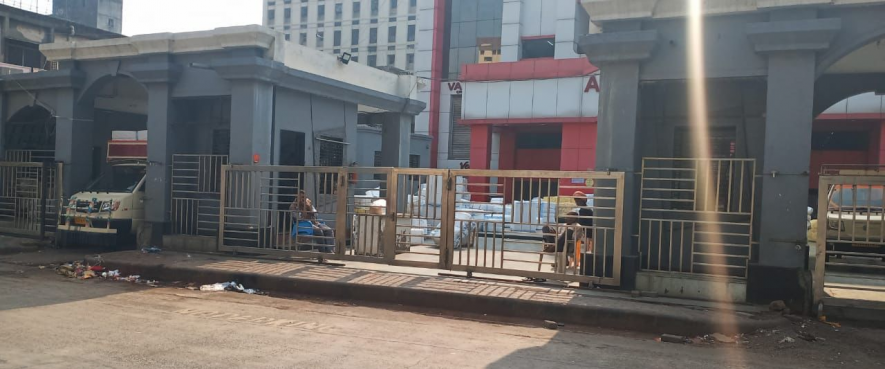
Noticeably, the textile traders of Surat have been at loggerheads with the BJP ruled government since the implementation of GST in the year 2017. Lakhs of textile traders had come out on the streets protesting against the GST regime. Some traders sat on indefinite hunger strike under the leadership of Hitesh Sanklecha, a textile trader who had become the face of the anti-GST movement. Local police had lathi-charged to break the movement injuring several traders.
Years later, the industry is yet to recover from the loss it incurred in 2017. Four crore metres of fabric used to be produced daily in Surat, which has been reduced to one and a half crore metres since the GST has hit the textile market. 70,000 power looms were sold in scrap as traders went bankrupt or changed their line of business. About four lakh workers who were in the embroidery business, half of whom are women, were rendered jobless within a week of GST implementation in 2017.
Update:
New Delhi, Dec 31 (PTI) The Goods and Services Tax (GST) Council has decided to defer the hike in tax rate on textiles from 5% to 12% as several state governments have raised objections, Andhra Pradesh Finance Minister Buggana Rajendranath Reddy said on Friday.
Speaking to reporters after the 46th GST Council meeting chaired by Union Finance Minister Nirmala Sitharaman, Reddy said several states said in the meeting that there was no clarity on GST to be imposed on apparel, clothing and textile products.
"Several states including Andhra Pradesh requested the Council to take back the earlier decision to increase the GST on textiles from current 5% to 12% from January 1 2022," he said.
Even there was no clarity on the rate of GST that would be imposed on nylon and cotton fabric as well as man-made and natural textiles.
There were also no estimates available with the Council on possible increase in refund if to be given, he said.
Get the latest reports & analysis with people's perspective on Protests, movements & deep analytical videos, discussions of the current affairs in your Telegram app. Subscribe to NewsClick's Telegram channel & get Real-Time updates on stories, as they get published on our website.















